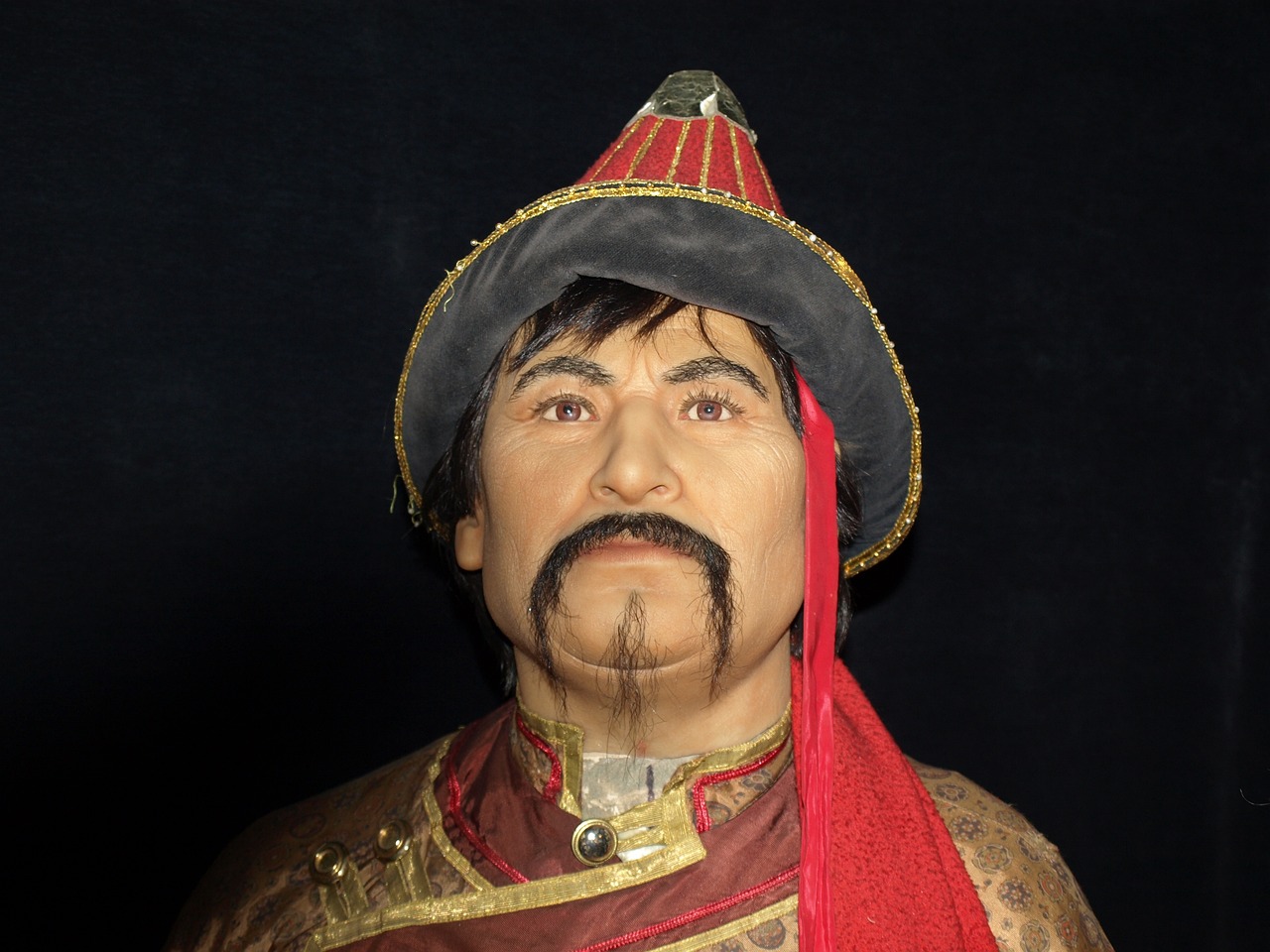The Gentle Giants: Vikings and Their Family Values

Vikings often appear in our imaginations as wild, axe-wielding marauders, but recent research paints a surprisingly tender portrait. Archaeological digs across Scandinavia have uncovered evidence of peaceful farming settlements interspersed with warrior graves, suggesting that many Vikings led double lives as both fighters and family men. According to a 2024 study in the Journal of Northern Studies, Viking women managed entire households and wielded significant economic power, sometimes even overseeing trade. When not at sea, Viking men worked alongside their families in agriculture, passing down skills and stories that promoted loyalty and honor. Viking sagas, still read today, are filled with tales of fathers teaching sons about fairness and courage. The evidence even points to intricate child-rearing traditions, with toys and small tools found in burial sites. This blend of ferocity and tenderness helped make their society resilient and close-knit.
Samurai: The Code of Bushido and Compassion

The Samurai are icons of discipline and martial excellence, yet their famed code, Bushido, placed as much value on compassion as it did on courage. The Bushido code—often summarized as “the way of the warrior”—required Samurai to show mercy, protect the vulnerable, and act with integrity. In a 2025 Asian Studies Review article, scholars discussed how many Samurai were also accomplished poets, calligraphers, and practitioners of the tranquil tea ceremony. Samurai were expected to appreciate the fleeting beauty of life, writing haiku about cherry blossoms and moonlit nights. This artistic side wasn’t just for show; it was seen as essential to developing balance and wisdom. Samurai leaders were known to sponsor schools and support their communities, using their skills for more than just battle. By embracing gentleness alongside strength, Samurai became role models in the complex art of living.
The Mongol Empire: Ruthless Conquerors with a Heart

The Mongols’ reputation for devastation often overshadows their surprisingly progressive policies. Genghis Khan’s empire, spanning much of Asia and Eastern Europe, enforced religious freedom and encouraged open trade. According to a 2024 report in the International Journal of Historical Studies, Mongol rulers welcomed merchants, scholars, and artisans from many backgrounds, creating a vibrant network of exchange along the Silk Road. The Mongols established a postal system and offered protection to travelers, fostering economic growth and cultural interaction. Genghis Khan himself was known to consult with spiritual leaders from various faiths, seeking wisdom beyond his own tradition. While their conquests were brutal, the Mongols’ respect for talent and difference helped knit distant cultures together. Their policies on tolerance and meritocracy often laid the groundwork for peace and prosperity in newly conquered lands.
The Spartans: Warriors with a Sense of Community

Spartans are often imagined as relentless soldiers, forged in the fires of constant warfare. Yet, their society prized community bonds and mentorship just as much as battlefield prowess. The infamous agoge training system, highlighted in a 2025 Classical Journal study, taught not just fighting skills but also teamwork and loyalty. Older Spartans acted as mentors, guiding younger warriors in values like honesty, endurance, and cooperation. This mentorship extended beyond training—Spartans participated in public festivals and communal meals, strengthening social ties. Their unique blend of discipline and togetherness created a sense of brotherhood few armies could match. The city-state’s survival depended on this deep camaraderie, which gave Spartans the strength to stand united in both peace and war.
Native American Warriors: Guardians of Nature and Tradition

Native American warriors from tribes like the Lakota and Navajo displayed incredible skill in battle, but their fiercest loyalty was to the land itself. A 2024 report from the Native American Journal of Anthropology revealed that warriors often led ceremonies dedicated to honoring nature and preserving resources. Their hunting and fighting techniques were designed to minimize harm and ensure sustainability for future generations. Storytelling was another vital part of their culture, passing down lessons of bravery, respect, and harmony with the earth. Many warriors took on roles as peacemakers and diplomats, negotiating with neighboring tribes to avoid unnecessary bloodshed. Their dedication to tradition, combined with a deep sense of stewardship, created a warrior ethos rooted in wisdom and responsibility. Even in conflict, their actions were guided by a profound respect for the world around them.
The Zulu: Fierce Fighters with a Rich Cultural Heritage

Zulu warriors, under legendary leaders like Shaka Zulu, are known for their battlefield strategies and fearless spirit. However, Zulu society is equally famous for its vibrant traditions in music, dance, and storytelling. According to a 2025 study in African Studies Quarterly, Zulu warriors regularly participated in elaborate ceremonies that celebrated their history and honored their ancestors. These gatherings featured rhythmic drumming, symbolic dances, and the recitation of family lineages, fostering unity and pride. Warriors were often expected to serve as community leaders, settling disputes and helping organize communal projects. Cultural pride was as important as military strength, with elders passing down wisdom through proverbs and parables. This balance of strength and softness helped keep Zulu communities resilient in the face of adversity.
The Knights Templar: Warriors of Faith and Charity

The Knights Templar, a medieval order of warrior-monks, are often depicted as fearsome crusaders, but their daily lives were filled with acts of charity. According to a 2024 analysis in the Journal of Medieval History, the Templars ran hospitals and provided safe passage for pilgrims traveling to Jerusalem. Many of their fortresses doubled as shelters for the poor and infirm, reflecting their Christian commitment to charity and humility. Templar knights took vows of poverty, promising to place the needs of others above their own. Their organizational skills helped build infrastructure, such as roads and bridges, that benefited local communities. Despite their martial reputation, the Templars’ soft side left a lasting legacy in the realms of healthcare and social welfare.
The Roman Legions: Discipline and Humanity

Roman legions were the backbone of one of history’s greatest empires, renowned for their unbreakable discipline. Yet, a closer look reveals that Roman soldiers were also skilled engineers and community builders. As highlighted in a 2025 Journal of Roman Studies report, legionaries constructed roads, aqueducts, and public buildings, leaving behind a legacy that still shapes Europe today. Soldiers often interacted with local populations, sometimes marrying and settling in conquered lands. The legions’ involvement in public works fostered goodwill, making them agents of civilization rather than just conquerors. Roman military manuals even instructed soldiers in basic medical care and the fair treatment of prisoners. These acts of humanity coexisted with their battlefield ferocity, creating a complex image of the Roman warrior.
The Complexity of Warrior Identity

Throughout history, the most feared warriors have often displayed a surprising range of soft sides that challenge our perceptions. From the familial bonds of Vikings to the cultural richness of Zulu warriors, these figures remind us that strength and compassion can coexist. Their legacies serve as a testament to the complexity of human nature, illustrating that even the fiercest fighters can embody values of community, tradition, and care. Understanding these softer aspects allows us to appreciate the full spectrum of what it means to be a warrior in history.


